London stocks on the FTSE 100 fell in early trade on Thursday, taking their cue from a downbeat session on Wall Street after a weak US Treasury auction, as investors mulled the latest UK borrowing figures and a raft results from the likes of BT and easyJet.
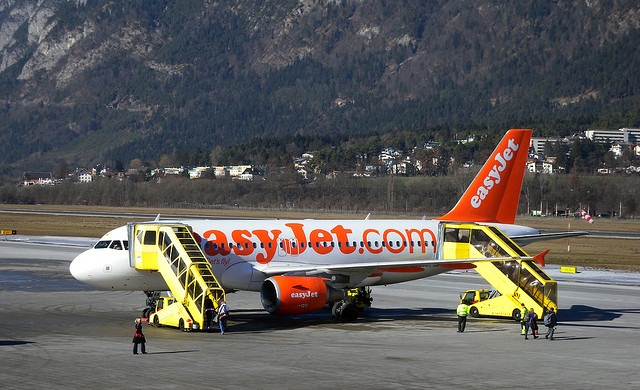
At 0835 BST, the FTSE 100 was down 0.5% at 8,747.01.
Stephen Innes, managing partner at SPI Asset Management, said: “Traders woke up to another bruising reminder that bond markets don’t lie – they scream. Wednesday’s botched 20-year Treasury auction didn’t just miss- it detonated, reigniting the sell-off in long-end US rates and ripping a fresh hole in US equity markets.”
On home shores, figures from the Office for National Statistics showed that government borrowing rose to £20.2bn in April, up £1bn on the same month a year ago and coming in above the £18bn expected.
It was the fourth-highest figure for April borrowing since records began in 1993.
The data also showed that borrowing for the year to March was £148.3bn. This is £11bn higher than the £137.3bn forecast by the Office for Budget Responsibility but £3.7bn lower than the initial estimate.
Elsewhere, a survey showed that consumer sentiment strengthened in May after the UK secured a key trade deal with the US.
According to the latest consumer sentiment monitor from the British Retail Consortium, expectations for the state of the economy over the next three months improved to -36 from -48 in April.
The personal financial situation also nudged higher, to -12 from -16, although personal spending on retail fell three points to 0 and personal spending overall was unchanged at 10.
Helen Dickinson, chief executive of the BRC, said: “Consumer confidence improved as UK economic growth picked up and geopolitical tensions eased as the US-China trade war began to cool.
“However, it remains far below levels seen last year.”
US president Donald Trump unveiled his sweeping global tariff regime on 2 April, with a number of countries – including China and the European Union – imposing their own reciprocal taxes.
However, since then Beijing and Washington have agreed a 90-day truce which has seen both countries slash previously sky-high tariffs on each other’s imports, while at home, the UK signed key trade deals with the US, India and the EU.
Dickinson said: “Only weeks ago, consumers were facing uncertainty arising from Trump’s eye-water tariffs. Fast-forward to today and the UK has trade deals with some of the world’s largest economies.
“While agreements with the US and India may have helped this month’s boost in consumer confidence, it is hoped the latest EU deal will drive further confidence in the outlook for the economy and personal finances.”
In equity markets, DCC was the biggest loser on the FTSE 100 as it traded without entitlement to the dividend.
BT Group slumped as it posted an unexpected fall in annual revenues and pointed to further declines over the coming year.
Budget airline easyJet fell as it posted a first-half loss before tax of £394m, in line with consensus, and said forward bookings for the third quarter were 80% sold.
The company added that current bookings are supportive of performance meeting full-year consensus estimates, but it remained mindful that, “consistent with this stage each year, there is still an important booking period for peak summer to go”.
Intertek and British Land also lost ground after results, while Sainsbury’s was knocked lower by a downgrade to ‘hold’ at Jefferies.
Bloomsbury Publishing tanked as the Harry Potter publisher said full-year pre-tax profit fell 22% to £32.5m.
On the upside, Marks & Spencer shot to the top of the FTSE 100 after an upgrade to ‘buy’ at Jefferies.
Johnson Matthey surged as the chemicals firm said it had agreed to sell its Catalyst Technologies business to Honeywell for £1.8bn.
Toby Carvery owner Mitchells & Butlers rallied after saying it expects annual earnings to be at the top end of estimates, and that underlying sales in the last 10 weeks had risen 6%.
Top 10 FTSE 100 Risers
| Sponsored by Plus500 |
|
| # | Name | Change Pct | Change | Cur Price | |
|---|---|---|---|---|---|
| 1 | 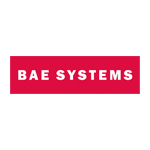 |
Bae Systems Plc | +0.38% | +7.00 | 1,826.00 |
| 2 | 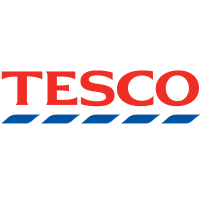 |
Tesco Plc | +0.29% | +1.10 | 381.70 |
| 3 |  |
Reckitt Benckiser Group Plc | +0.24% | +12.00 | 4,910.00 |
| 4 |  |
Glencore Plc | +0.09% | +0.25 | 267.40 |
| 5 | 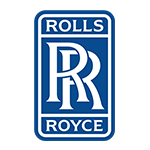 |
Rolls-royce | +0.02% | +0.20 | 824.60 |
| 6 |  |
Toyota Motor Corporation | +0.00% | +0.00 | 6,926.17 |
| 7 |  |
Smith (ds) Plc | +0.00% | +0.00 | 582.50 |
| 8 |  |
Gen.acc.7se.pf | +0.00% | +0.00 | 134.50 |
| 9 |  |
Gen.acc.8se.pf | +0.00% | +0.00 | 154.00 |
| 10 |  |
Intermediate Capital Group Plc | +0.00% | +0.00 | 2,124.00 |
Top 10 FTSE 100 Fallers
| Sponsored by Plus500 |
|
| # | Name | Change Pct | Change | Cur Price | |
|---|---|---|---|---|---|
| 1 |  |
Intertek Group Plc | -4.23% | -208.00 | 4,712.00 |
| 2 | 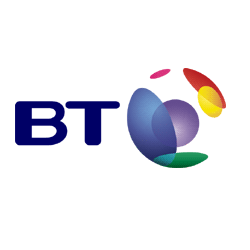 |
Bt Group Plc | -2.81% | -4.75 | 164.50 |
| 3 |  |
Bunzl Plc | -2.78% | -68.00 | 2,374.00 |
| 4 |  |
Experian Plc | -2.65% | -103.00 | 3,778.00 |
| 5 |  |
Flutter Entertainment Plc | -2.63% | -480.00 | 17,805.00 |
| 6 |  |
Intermediate Capital Group Plc | -2.51% | -52.00 | 2,016.00 |
| 7 |  |
Smurfit Westrock Plc | -2.51% | -85.00 | 3,297.00 |
| 8 |  |
Carnival Plc | -2.42% | -36.50 | 1,474.50 |
| 9 |  |
Barratt Redrow Plc | -2.41% | -11.30 | 457.40 |
| 10 |  |
Severn Trent Plc | -2.05% | -57.00 | 2,718.00 |
US close: Stocks sink as soft bond auction pushes yields higher
A lacklustre bond auction and surging yields saw US stock markets slide on Wednesday, falling at their steepest levels in a month.
The Dow dropped 1.9%, while the S&P 500 fell 1.6% and the Nasdaq slumped 1.4%.
The US Treasury saw softer-than-expected demand in a $16bn auction of 20-year bonds on Wednesday at yields of 5.047%, up from 4.810% the last auction. This was the highest coupon rate for a 20-year bond since 2020 when the maturity was reintroduced.
The weak auction comes amid mounting fears about the US government deficit with massive tax cuts put forward by president Donald Trump unlikely to help matters. Meanwhile, last Friday’s decision by Moody’s to cut the US credit rating from the highest rating Aaa to Aa1 was also weighing on sentiment.
The auction saw 10-year US Treasury yields rise 10.7 basis points to 4.598% by the close of play on Wall Street, hitting levels not seen since January, while the 30-year bond yield rose as high as 5.099%, reaching highs not seen since 2023.
“Let’s be clear: this wasn’t some garden-variety supply indigestion. This was a market flashing red on fiscal credibility, with the debt downgrade gumbo still simmering in the background,” said Stephen Innes, managing partner at SPI Asset Management.
“The Moody’s cut may not have shocked the tape initially, but the bond vigilantes are starting to stir, and this weak auction added fuel to that fire.”
Also weighing on stocks were fears about an escalation of conflict in the Middle East on reports that Israel is looking to attack Iran’s nuclear sites, while hopes for a ceasefire between Ukraine and Russia remain up in the air.
The only major economic data release of the day was from the Mortgage Bankers Association, which reported that mortgage applications in the US slumped last week as the average long-term mortgage rate hit its highest in three months. The MBA’s Market Composite Index showed that applications fell 5.1% in the week ended 16 May, following a 1.1% increase the previous month, making the first decline in three weeks.
Market movers
Target fell sharply after cutting its full-year guidance on Wednesday as the US retail giant missed first-quarter forecasts. The big box retailer said net sales fell 2.8% in three months to 3 May to $23.85bn, below the $24.27bn Wall Street was expecting.
Brian Cornell, chief executive, said the trading environment during the first quarter had been “highly challenging”. He blamed Target’s performance on weakened consumer sentiment and the impact of Donald Trump’s tariff regime.
DIY retailer Lowe’s managed to beat profit expectations, but that didn’t stop the stock from falling, with same-store sales down 1.7% in the first quarter. First-quarter revenues totalled $20.93bn, coming in slightly shy of the $20.97bn expected.
Another retailer under pressure was VF Corp as the Vans and North Face parent company missed forecasts with its sales outlook.
Thursday newspaper round-up: Liberty Steel, HSBC, NMC
Liberty Steel has produced nothing at two of its key UK plants since July, in a sign of the deep financial difficulties for Britain’s third-biggest steelmaker as it looks for rescue funding. The plants at Rotherham in South Yorkshire and Motherwell in Scotland have not produced any steel for about nine months because of a lack of funds to buy vital materials, with staff on furlough on 85% of their salaries for the duration, according to workers who spoke to the Guardian. – Guardian
HSBC has told staff in its UK high street banks that it may cut their bonuses if they do not work in the office frequently enough. The bank told employees at its HSBC UK division, which includes its retail and domestic commercial banking businesses, that anyone who did not spend at least 60% of their time in the office could end up being paid less, according to a report by Bloomberg. – Guardian
The London stock market needs “major reforms” to compete on the world stage, a US private equity billionaire has said. Orlando Bravo, the managing partner of Thoma Bravo, said reforms were “long overdue” amid concerns British companies have struggled to attract the same stock market valuations as US rivals. – Telegraph
Ed Miliband’s race to embrace net zero is fuelling an exodus of jobs to China, the heir to the JCB empire has warned. Jo Bamford, the owner of Wrightbus and son of JCB founder Lord Bamford, said the Energy Secretary’s desire to decarbonise the grid was flawed because it is too reliant on importing green energy equipment from the Far East. Instead, he urged the Government to become a leader in hydrogen to safeguard jobs. – Telegraph
As the long-awaited £2 billion claim brought by NMC Health against EY began to be heard in His Majesty’s High Court of Justice in London this week, the opening submissions have shone a light on the alleged links between the former FTSE 100 company and another royal court. After NMC, based in the United Arab Emirates, collapsed into administration five years ago in one of the biggest alleged fraud scandals to hit the London Stock Exchange, rumours have circulated that the private healthcare company was ultimately owned by Sheikh Mansour bin Zayed al-Nahyan, the deputy prime minister of the UAE and the owner of Manchester City football club. – The Times


 Hot Features
Hot Features













